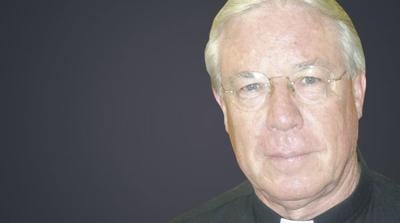The theme of this issue of This Is the Day is uncomplicated, but has taken a rather circuitous route to arrive at its destination. The rambling thoughts all began when I realized that today’s date celebrates the anniversary of President Harry Truman signing into law America’s Economic Recovery Plan of 1948, better known as the Marshall Plan. From there, my meandering ideas and frequent distractions led me to any number of emphases, any of which would have been worthy but did not satisfy my spiritual appetite for their utmost depth.
The Marshall Plan, in case you skipped that day in your high school American history class, was the United States’ undertaking to restore the economies of western Europe, which had been totally laid to waste by World War II. Twelve billion dollars of American taxpayer money, equivalent to more than $120 billion today, was invested in order that the citizens of 16 nations might have sustainable economies, and it succeeded magnificently.
People are also reading…
My first spiritual direction of thought was to emphasize our postwar relationship with Germany and emphasize embracing our enemy as a friend was more consistent with the teachings of Christ. That is true and is a principle that merits attention. However, the more I studied the historical implications of the Marshall Plan and learned of its impact on world politics, I also understood the great deterrence it became in thwarting the spread of communism. Also, the Economic Recovery Plan of 1948 made an impact upon the missionary movement of Christianity as nongovernmental groups all around the world discovered the attractiveness of their preaching due to the great assistance of the lifesaving features of it working hand-in-hand with their programs.
Nevertheless, as commendable as any one of those truths might have been and deserving as a theme, another, more evasive, truth seemed to be beckoning for attention. I discovered it rather subtly hiding in the character of George C. Marshall himself.
Marshall was a living contradiction. We know of him from history, but there was little about his personal bearing to have made him stand out. We know he held some of the highest offices in the land (General of the Army, Secretary of State), and he was honored for great achievements (Nobel Peace Prize), but his nature was so unobtrusive one wonders how he was even noticed.
It was said of him, almost as an acknowledgment of an inability to describe this illusive trait, that “He just had a way about him.” Marshall did not have to have a bellicose demeanor. What he was as a man spoke sufficiently to those about him to not only to heed his words but to emulate his example.
When he took command of Fort Benning in Georgia, he discovered the training base to be in greatly deteriorating condition unworthy of a U.S. Army installation. Rather than give orders for repairs and cleaning, he undertook the same of his own accommodations. Within two weeks, the entire base had done the same; all without a direct order and accomplished by those living there.
A later and also renowned military leader, General Arnold Schwarzkopf, probably analyzed Marshall’s profile best when he said that many military leaders seek achievements through rewarding of rank or medals. But that only reveals that they lack character. Real leadership lies in the integrity of the individual. What a person truly is in their soul will eventually unveil itself regardless of the charade the individual attempts to display.
Marshall was the same with his faith. A Christian from his 16th year, he spoke little of religion, but in his interactions with his assignments, his subordinates and, yes, his enemies, the Marshall Plan spoke volumes of his vision of the future and his discernment of caring for people in the present.
The Rev. Johnny A. Phillips is a retired minister who lives in Burke County. Email him at phillips_sue@bellsouth.net.











